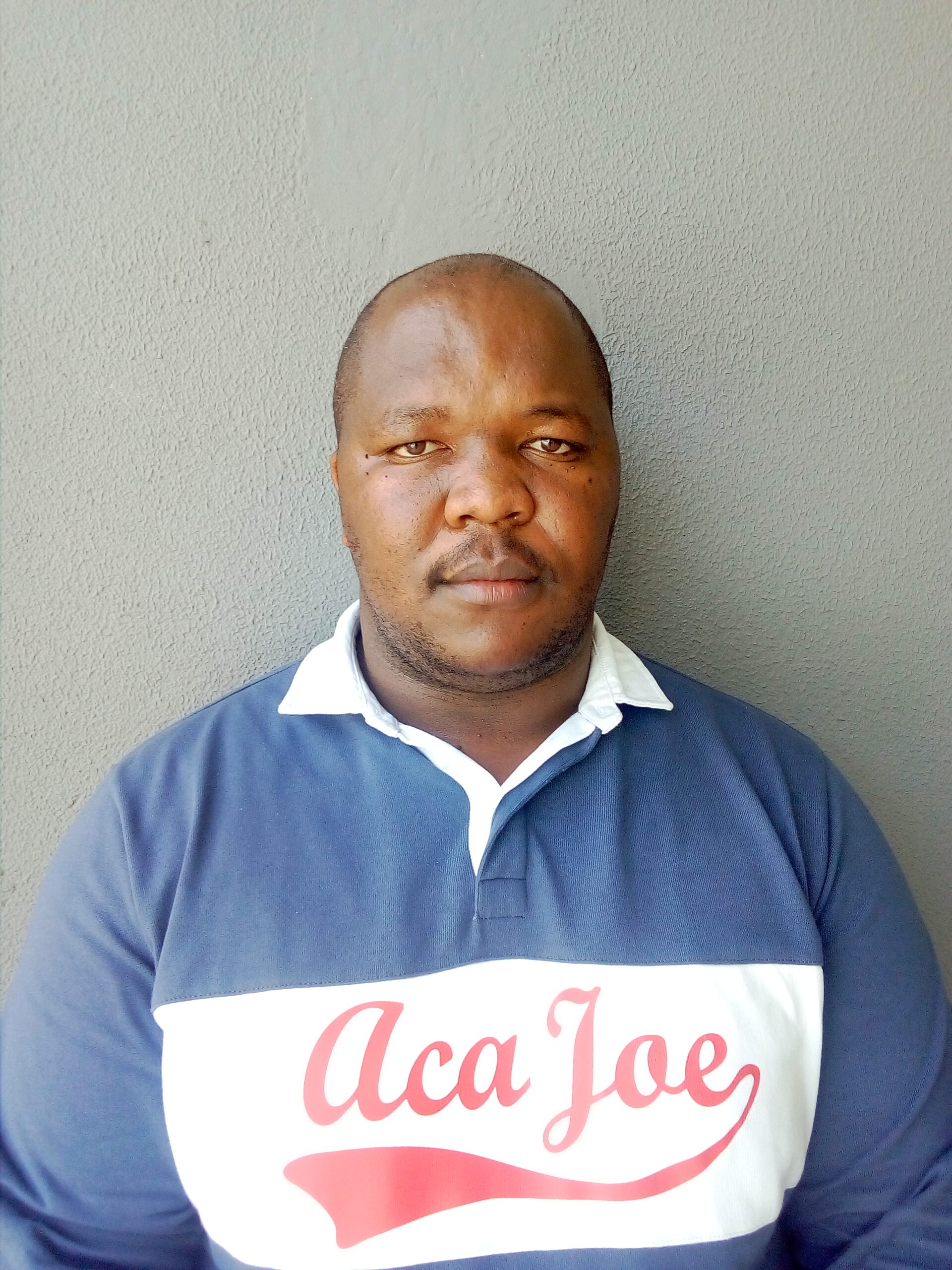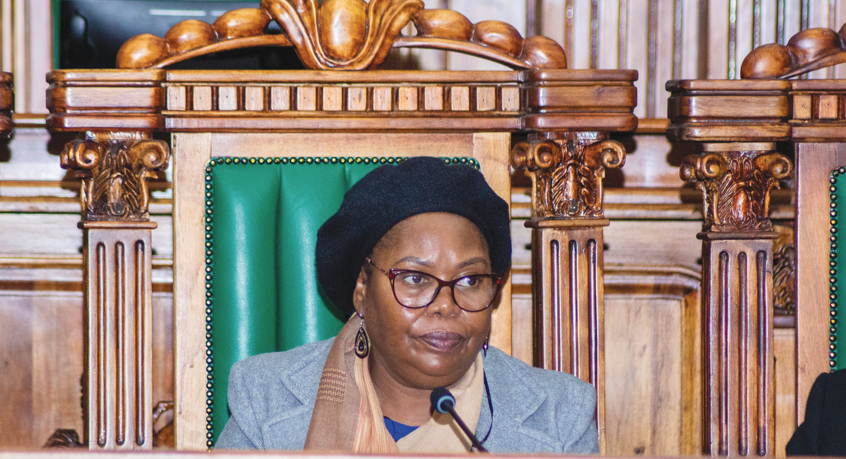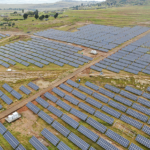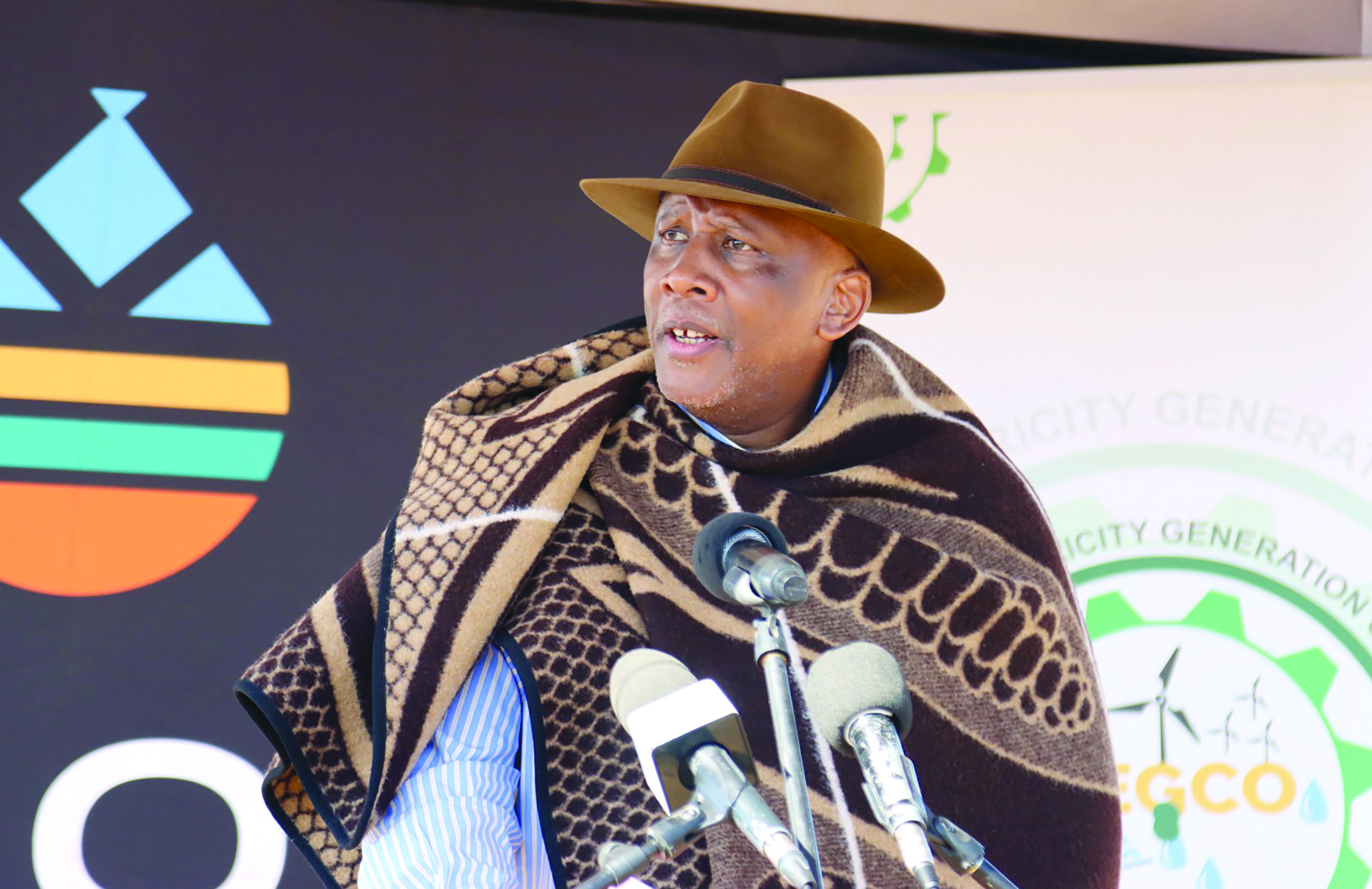The Public Accounts Committee (PAC) has called for the dissolution of the Lesotho Electricity Generation Company (LEGCO), the entity responsible for operating and maintaining the Ramarothole Solar Plant in Mafeteng.
The solar plant was built to supplement Lesotho’s energy supply and reduce the over M600 million spent annually on electricity imports. The country aims to achieve energy self-sufficiency and eventually export surplus energy to the Southern African Development Community (SADC) power pool.
However, the PAC has raised concerns that LEGCO lacks legal standing, having been established by a 2019 Cabinet decision without the necessary legislative framework. During hearings, the Committee grilled officials from the Ministry of Energy and LEGCO over its legitimacy.
Principal Secretary (PS) in the Ministry of Energy, Tankiso Phapano, admitted that LEGCO was set up as an emergency response to manage the solar plant. Pressed to dissolve it, he said legal gaps would be addressed through the Energy Bill currently before Parliament.
He stopped short of agreeing to shut the company down but promised corrective measures during its operation.
PAC Chairperson ‘Machabane Lemphane-Letsie said the Committee would recommend tough government action to ensure compliance. PAC also expressed discomfort with LEGCO’s monthly M1.2 million wage bill, funded by taxpayers, and questioned staff qualifications and hiring practices.
It emerged that employees were appointed by the PS rather than a governing board, as required for non-government projects. The Committee criticised the hiring of a senior finance officer with only a BA in Business Entrepreneurship to manage a M1.5 billion investment.
PAC recommended that most staff be released until LEGCO is legally established, keeping only essential personnel.
“There is too much redundancy in LEGCO,” said Lemphane-Letsie.
During a PAC site visit on Monday, reports emerged that some employees work only four to twelve days a month while earning full salaries, raising concerns of inefficiency and mismanagement.
PAC further warned that the lack of a legal framework could jeopardise the solar project’s future. The Ramarothole plant has already faced scrutiny after it was revealed last week that it was constructed without an environmental impact assessment (EIA), a key requirement for capital projects.
In its bid to boost domestic electricity generation, the government has awarded contracts to OnePower and Beijing Jinyuntong Technology Co. Ltd (JYT) to build, operate, and transfer a solar power plant. However, the deal with JYT has raised concerns over the adequacy of due diligence in the procurement process.
All the projects are earmarked for the Ramarothole area, which is rapidly becoming a hub for solar energy development.
The government is also reportedly finalising arrangements for the Ramarothole Phase II project, which is expected to add 50 megawatts to the national grid.
During a site inspection on Monday, staff from the Lesotho Electricity Generation Company (LEGCO) told the Parliamentary Committee on Public Accounts (PAC) that hydropower remains a more efficient and reliable option for the country.
“Solar energy has challenges, including weather dependence and the need to replace panels as they reach the end of their lifespan,” the Committee was told.
The PAC hearings further revealed that the Lesotho Electricity Company (LEC) owes LEGCO approximately M70 million related to solar power generation. While the Ramarothole Solar Plant Phase I has already contributed 30 megawatts to the national grid, the Committee said it reserves the right not to settle the debt at this stage.
The controversy surrounding the solar projects has raised concerns that it could undermine His Majesty King Letsie III’s global efforts to attract investment into Lesotho’s clean energy sector.
The King’s green diplomacy has already borne fruit. UK Export Finance (UKEF) has pledged £250 million (approximately M6 billion) to support renewable energy initiatives in Lesotho, a figure that could potentially double.
This commitment followed a visit earlier this year by Dirk van den Berg, UKEF’s Head of Export Finance for Southern Africa, in the wake of the King’s investment promotion mission to the United Kingdom in May 2024.
To further this agenda, Lesotho has partnered with Standard Chartered and the Standard Bank Group to establish the King’s Just Energy Transition Fund. The fund is designed to attract private and international investment into renewable energy projects and support the country’s ambition of achieving energy self-sufficiency.
Summary
- The Public Accounts Committee (PAC) has called for the dissolution of the Lesotho Electricity Generation Company (LEGCO), the entity responsible for operating and maintaining the Ramarothole Solar Plant in Mafeteng.
- During a site inspection on Monday, staff from the Lesotho Electricity Generation Company (LEGCO) told the Parliamentary Committee on Public Accounts (PAC) that hydropower remains a more efficient and reliable option for the country.
- While the Ramarothole Solar Plant Phase I has already contributed 30 megawatts to the national grid, the Committee said it reserves the right not to settle the debt at this stage.

Thoboloko Ntšonyane is a dedicated journalist who has contributed to various publications. He focuses on parliament, climate change, human rights, sexual and reproductive health rights (SRHR), health, business and court reports. His work inspires change, triggers dialogue and also promote transparency in a society.








